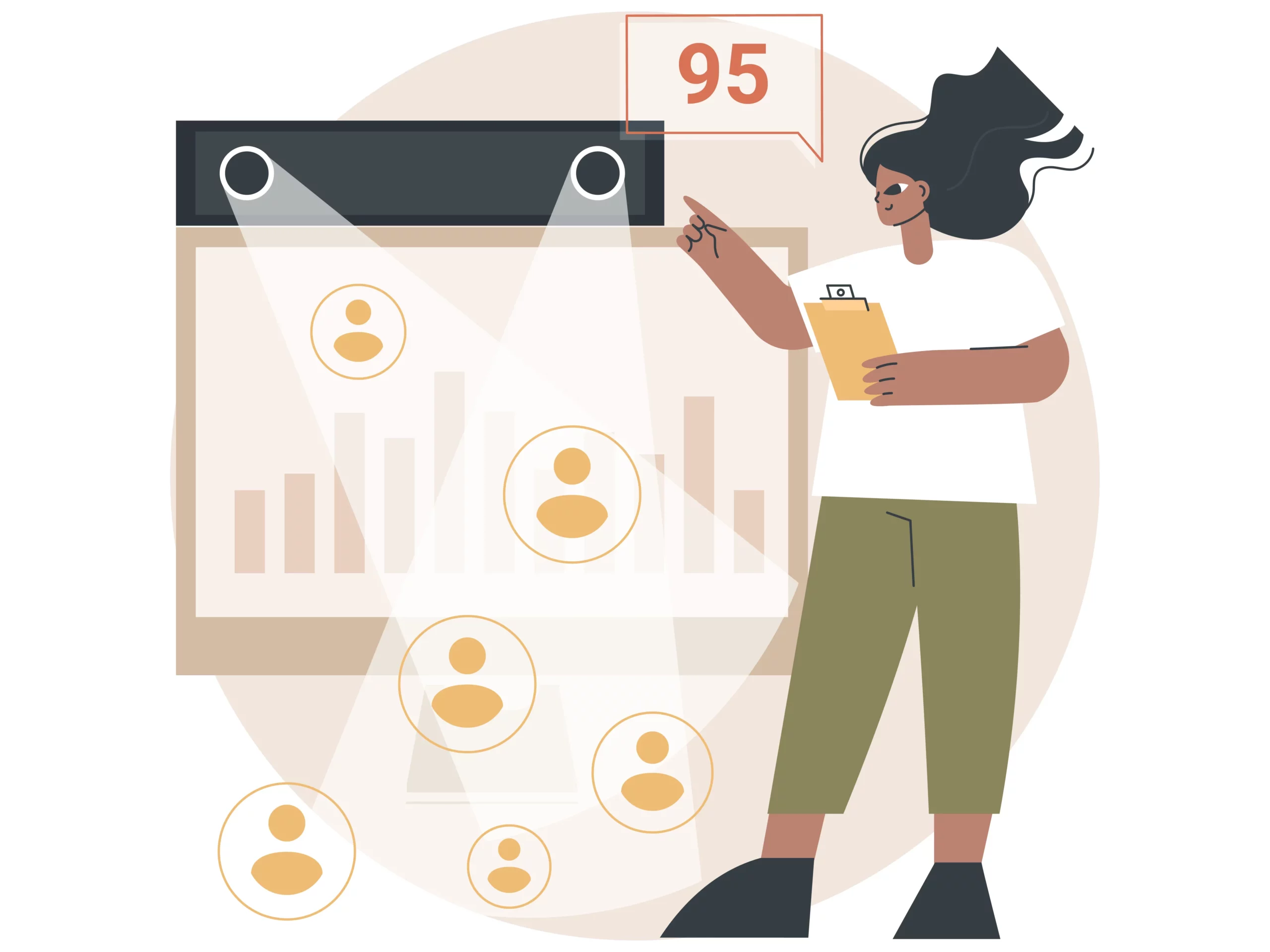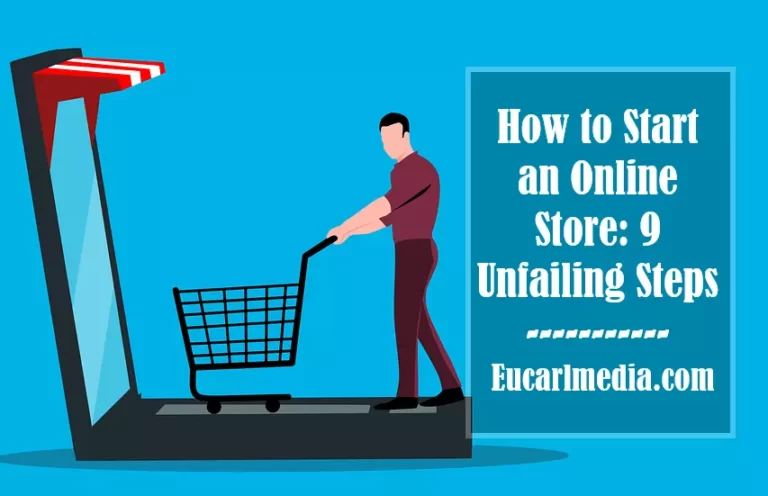Facebook Ads Keyword Targeting 101: A Comprehensive Guide
Questions on how to implement Facebook ads keyword targeting have been flooding the EucarlMedia platform as of late. Therefore, we have settled on publishing this extensive manual that has answered the question.
This article delves further into the topic of interests to target for Facebook ad campaigns. This is so as to effectively reach your target audience with greater performance in front of search engine result pages.
Additionally, we’ll also show you how to use the different keywords and interests you uncover to better target your audience on Facebook, which should ultimately lead to increased sales and ROI.
We’ve also detailed the four best practices for Establishing the Audience for keyword targeting in Facebook ads. These soon-to-be-listed methods will shed light on who your ideal online customers are and how to reach them.
Let’s cut the small talk and get down to the meat of the issue at hand. Let’s go!
What Kind Of Data Does Facebook Ad Targeting Use?

You can develop highly efficient and fruitful audiences by making use of Facebook’s extensive targeting capabilities, including keyword targeting.
There are, however, a few targeting choices that Facebook has approved for use in data collection. And some of these sources are:
- Users’ information on Facebook
- Advertiser information
- Third-party information
Users’ Information On Facebook
Keywords for Facebook ads generation rely heavily on this information. And it covers a wide range of things, from demographics to social networks to age to activity level to habits of the audience.
Keep in mind that the opt-out of tracking in iOS 14 won’t have any effect on the terms you’re trying to target. This is due to the fact that Facebook may leverage first-party user data.
Advertiser Information
You can use both first-party and third-party data in your Facebook ads keyword targeting. The advertiser’s data, on the other hand, is crucial information.
You can get in touch with people who have shown interest in your company before using this information. After making contact, you’ll be able to expand your reach by building lookalike and custom audiences.
Third-party Information
Often referred to simply as “third-party data,” information from sources other than the primary organization or individual involved in an activity
There is still some mystery surrounding the precise data used to generate keywords for Facebook ads. However, it still helps advertisers find the right people to target with their messages.
Let’s talk about the three primary Facebook ad audiences, keyword targeting, potential problems, and potential solutions:
Types Of Facebook Targeting Audiences
Here’s a quick rundown of the 3 main Facebook targeting audiences, each of which has an impact on the keywords used and the content developed for each given Facebook ad:
- The Core Audience: In Ads Manager, this is the most common form of audience. You can specifically target customers depending on information about them, like their IP address, internet service provider, or demographics.
- The Custom Audience: Using individual details, it would be possible to construct these audiences with greater precision. One example of such specific information is the audience’s preferred method of interacting with a given piece of content.
- The Lookalike Audience: During Facebook ads keyword targeting, a handy tool is accessible through the Business Center section of Facebook. Similar to the client list you submitted, you can now construct comparable audiences.
Establishing The Audience For Facebook Ads By Keyword Targeting
Your Facebook ads keyword targeting will be more successful and optimized if you use the information you acquire to generate custom and lookalike audiences.
The Facebook Ads Manager is where you’ll want to be in order to complete this simple task. After that, head straight to the page’s audience section bar.
To help you convert your custom and lookalike audiences, we’ve published 4 comprehensive guides on the matter. Let’s get into a deeper discussion of them:
1. Creating A Keyword-based Custom Audience

If you want to deliver the best possible service to your Facebook ads keyword targeting, you should start by creating a Google Ads campaign and learning as much as you can about them.
Once you have collected at least 100 clicks from your initial group of Facebook visitors, you can use this information to target and convert them into a loyal customer base of 500+ people.
In order to create a custom audience based on keywords for Facebook ads, you should;
- Use Facebook’s Ad Manager to get to the Audiences tab. You can achieve this by selecting the optimal Facebook Pixel on the appropriate platform.
- In addition, choose “audience on each web page” as the target demographic. The number of days your Google Ads campaign has been active is a compulsory field to fill out.
- Next, choose the specific landing page that you want to direct traffic to from your keywords for Facebook ads campaign.
- In addition, fill out the chosen URL field with the URL of the landing page you’ve decided on.
- It’s also wise to give your target demographic a name and sprinkle keywords liberally throughout the text.
If you follow the procedures provided here for keyword targeting in Facebook ads, you’ll be able to effectively use them to reach your target audience and drive more visitors to your site.
2. Creating A Keyword-based Lookalike Audience
You should realize that the keyword-based lookalike audience allows us to go much beyond basic retargeting and obtain access to a plethora of benefits if you have any interests to target for Facebook ad campaigns.
Here’s how to create a Facebook ad audience based on a set of keywords:
- First, you’ll need to zero in on the specific segment of a particular audience that you want to target.
- Next, select the precise IP location that you utilized in your Google Ads keywords for the Facebook ad campaign.
- In addition, you’ll be able to select the average size income of your ideal clientele.
- You can also create a target audience for use in a future Facebook ad campaign’s keyword targeting.
Here’s a pro tip that can help you target your audiences more effectively: always think about creating several lookalike audiences from a single source. The appropriate range for this size is 1% to 10%.
3. Analyzing Facebook Ad Keyword Audiences
Ensuring that your keyword audiences yield effective results is crucial when incorporating them into your campaign since this will give you more opportunities to reach out to a larger audience.
While this method cannot provide superior results overnight, it can provide a new perspective on how to vary your campaigns to outperform the competition.
Effective evaluation of your Facebook ads keyword targeting best practices requires first defining your objectives and then comparing the results to those targets.
Another foundation for reaching your objective with separate lookalike audience sizes is to create various ad sets within a Facebook Ads campaign.
Also, it’s crucial to evaluate the outcomes next to Google Ads Manager’s output. The purpose of this technique is to help you figure out what kind of digital marketing approach would work best for your Facebook advertisements.
4. The Free Method For Facebook Ads Keyword Targeting
The only difference between Facebook’s free method and Facebook ads keyword targeting in SEO is that it doesn’t use Google Ads to drive visitors to specific websites based on search terms.
This strategy also makes use of our analytics data in order to locate organic web pages. Next, we’ll collect information about which parts of the websites need visitors and build targeted audiences accordingly.
The method for doing this analysis, however, has not altered. Simply choose the landing page URL that performed best in terms of organic traffic. Then, run it through an analysis tool for more insight.
Connecting your Google Search Console and Google Analytics accounts is crucial if you want to get the most out of your data. Facebook advertising, keyword selection, and content production can all benefit from this link.
How To Test Your Keywords For Facebook Ads

One common SEO mistake is lumping together all of your prospective keywords for one generic target demographic. Instead, you should engage in systematic testing because it is the most reliable method.
However, many website owners have trouble with Facebook ads keyword targeting. If you fall into this category, you need a well-thought-out strategy for your marketing.
Using this tried-and-true method, you can see which phrases bring in the most customers over a set time frame and thereby increase your profits.
Based on commonalities and frequency of occurrence, we have divided this set of terms into various groups. This involves categorizing keywords according to user profiles, including job function, geographic area, and preferred content type.
Finding the best-performing terms from your Facebook keyword research will pave the way for more experimentation, such as trying out different images or text versions that feature the phrase.
I hope this explanation of Facebook ads keyword targeting best practices has provided you with a better understanding of how to effectively identify the most suitable keywords for Facebook ads.
If you have any tried-and-true strategies that have worked for you, please feel free to share them in the comments below. You should read some of the other posts on my blog to gain even more knowledge.




![Top Influencer Marketing Agencies In Nigeria [10 Best Firms] Top Influencer Marketing Agencies In Nigeria [10 Best Firms]](https://eucarlmedia.com/wp-content/uploads/2022/08/20220822_130056-768x512.webp)

